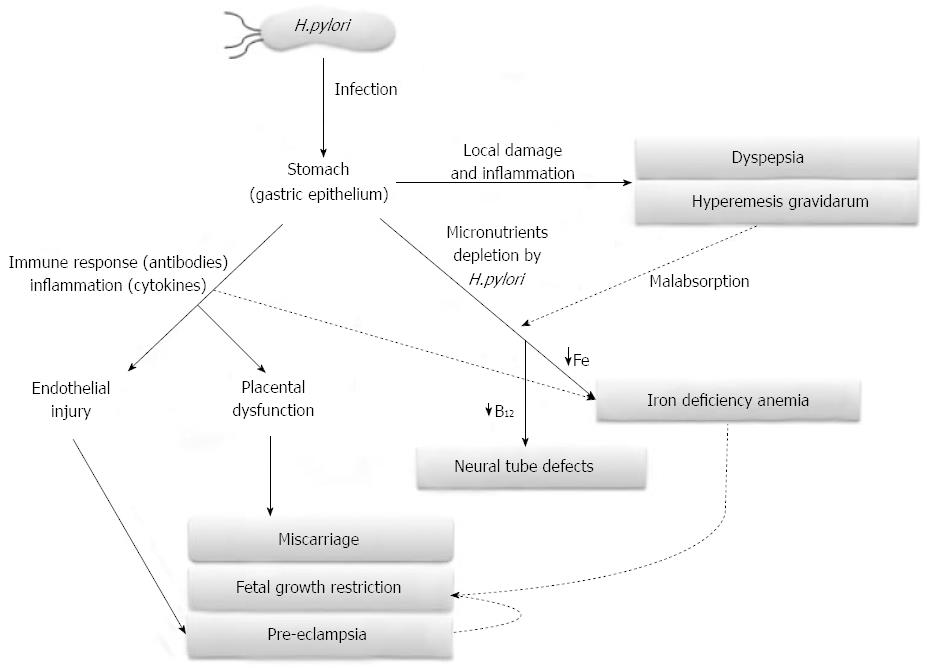Copyright
©2014 Baishideng Publishing Group Co.
World J Gastroenterol. Jan 21, 2014; 20(3): 654-664
Published online Jan 21, 2014. doi: 10.3748/wjg.v20.i3.654
Published online Jan 21, 2014. doi: 10.3748/wjg.v20.i3.654
Figure 1 Helicobacter pylori infection correlation with pregnancy-related disorders.
Helicobacter pylori (H. pylori) infection can cause local damage and inflammation, leading to gastrointestinal disorders such as dyspepsia in pregnancy and hyperemesis gravidarum. H. pylori sequesters essential micronutrients from the host organism. In particular, iron depletion may lead to iron deficiency anemia (IDA), while reduction of vitamin B12 and folate may result in fetal neural tube defects. Lack of these micronutrients may also be favored by gastric malabsorption in case of the above mentioned gastrointestinal problems. Furthermore, IDA could indirectly be the consequence of local and systemic inflammation induced by H. pylori infection. Finally, the immune and inflammatory responses caused by this infection lead to endothelial and placental injury, through the cross-reaction of anti-H. pylori and tissue antigens and through the production of pro-inflammatory cytokines. Placental dysfunction characterizes important diseases of pregnancy, such as miscarriage, fetal growth restriction (FGR) and pre-eclampsia that it is also characterized by endothelial damage and it is often associated with FGR. Furthermore, IDA could be a risk factor for FGR.
-
Citation: Cardaropoli S, Rolfo A, Todros T.
Helicobacter pylori and pregnancy-related disorders. World J Gastroenterol 2014; 20(3): 654-664 - URL: https://www.wjgnet.com/1007-9327/full/v20/i3/654.htm
- DOI: https://dx.doi.org/10.3748/wjg.v20.i3.654









